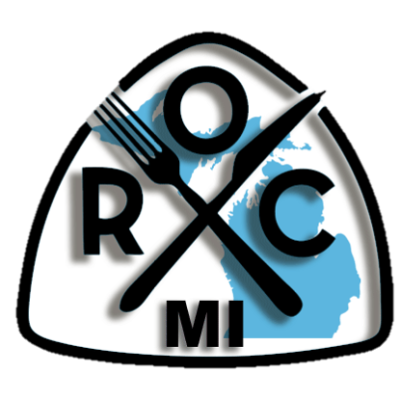Who
The majority of the United States restaurant industry has long relied on a business model that utilizes policies and practices that sacrifice the well-being of its workers in lieu of profits. The two-tiered wage system, a divide between Front-of-House and Back-of-House workers, lack of benefits, and limited career growth potential, together, create working environments that reinforce racial inequality, gender inequality, and socio-economic immobility. Since its founding in 2001, the Restaurant Opportunities Centers United (ROC-United) has implemented a three-pronged approach using research, advocacy, and market-based initiatives to engage consumers, workers, and employers in order to expose and address these issues. ROC-United launched ten affiliate offices, to further this mission in cities with major restaurant industries, including one in Michigan in 2008. Since inception, Restaurant Opportunities Center of Michigan (ROC-MI) has worked for the advancement of the 134,000 restaurant workers of Southeast Michigan, organizing local workers and successfully publishing key research in the field. ROC-MI also offers classes through Colors Hospitality Opportunities for Workers (CHOW), which provides training for under or unemployed workers, and has developed COLORS, a restaurant designed to demonstrate the High Road model— a profitable restaurant model that follows ethical practices.
The Challenge
Set within Detroit, a city with both exceedingly high unemployment and a resurgent restaurant industry, ROC-MI is uniquely positioned to fill a market gap by training under-skilled workers for employment in the restaurant industry and by offering a sustainable, replicable example of a High Road restaurant. But while ROC-MI has had many significant accomplishments, COLORS has yet to have the commercial success necessary to prove the potential profitability of a High Road model. This, in turn, has negatively affected the CHOW training program, as foot traffic in the restaurant and profit to support programming are necessary for CHOW’s success.
How we Helped
Mission Throttle was inspired by ROC-MI’s market-based approach through COLORS and CHOW and worked collaboratively to create an enhanced business strategy that supports its financial sustainability and social impact. Mission Throttle believes COLORS has an opportunity to be a successful example of the High Road model while supporting best-in-class training through CHOW. By considering alternate business strategies, COLORS can maximize its social impact and advance Restaurant Opportunities Center’s long-standing mission.
Our Impact
Mission Throttle’s analyses, decision-making tools, and implementation plans will allow ROC-MI to improve its financial resiliency, realize the potential of its market-based initiatives, and accelerate its impact in improving lives of restaurant workers.
“I love the idea that Mission Throttle works with small and midsize nonprofit social enterprises to bring them the same types of information, innovations, and professional consultation that for profit entities are receiving. Mission Throttle provided us with additional insights as to how we might get this work done through unique partnerships that align with our own theory of change in this industry. I also really appreciated MT’s understanding of the time constraints that our organization had because of limited staffing capacity.”
— Dr. Alicia Renee Farris, Restaurant Opportunities Center of Michigan


